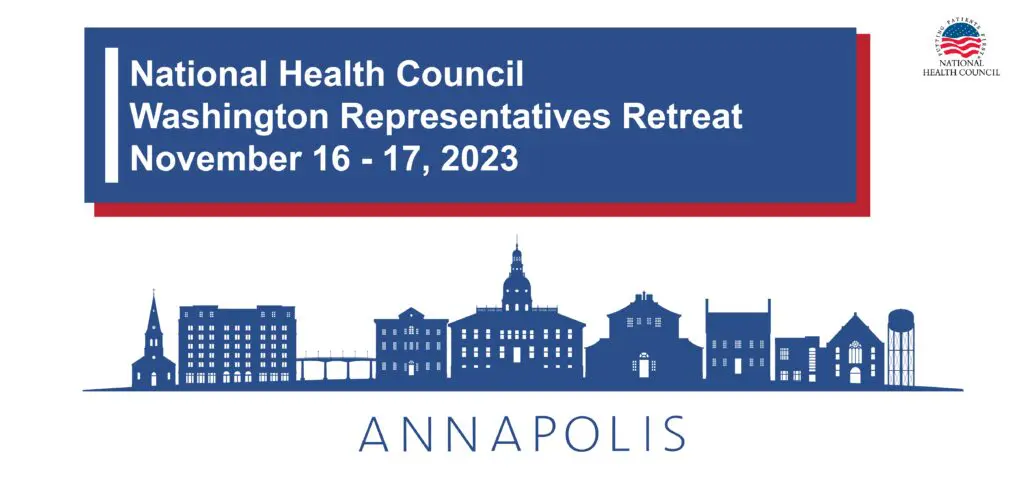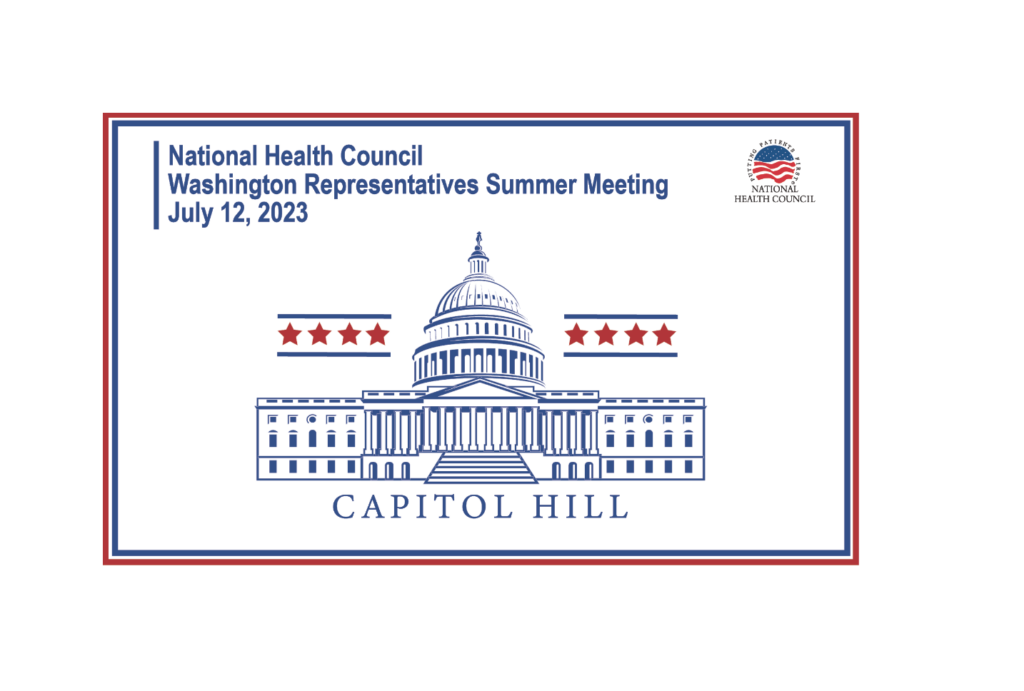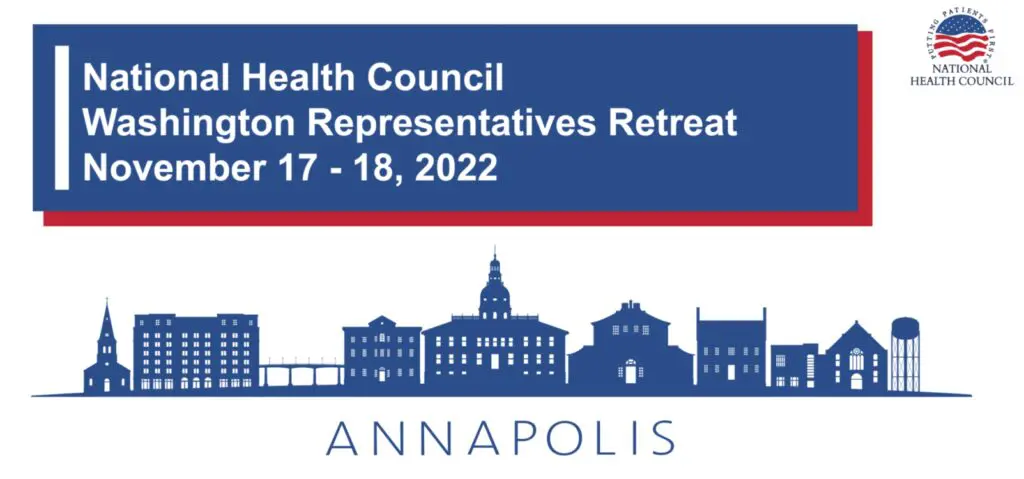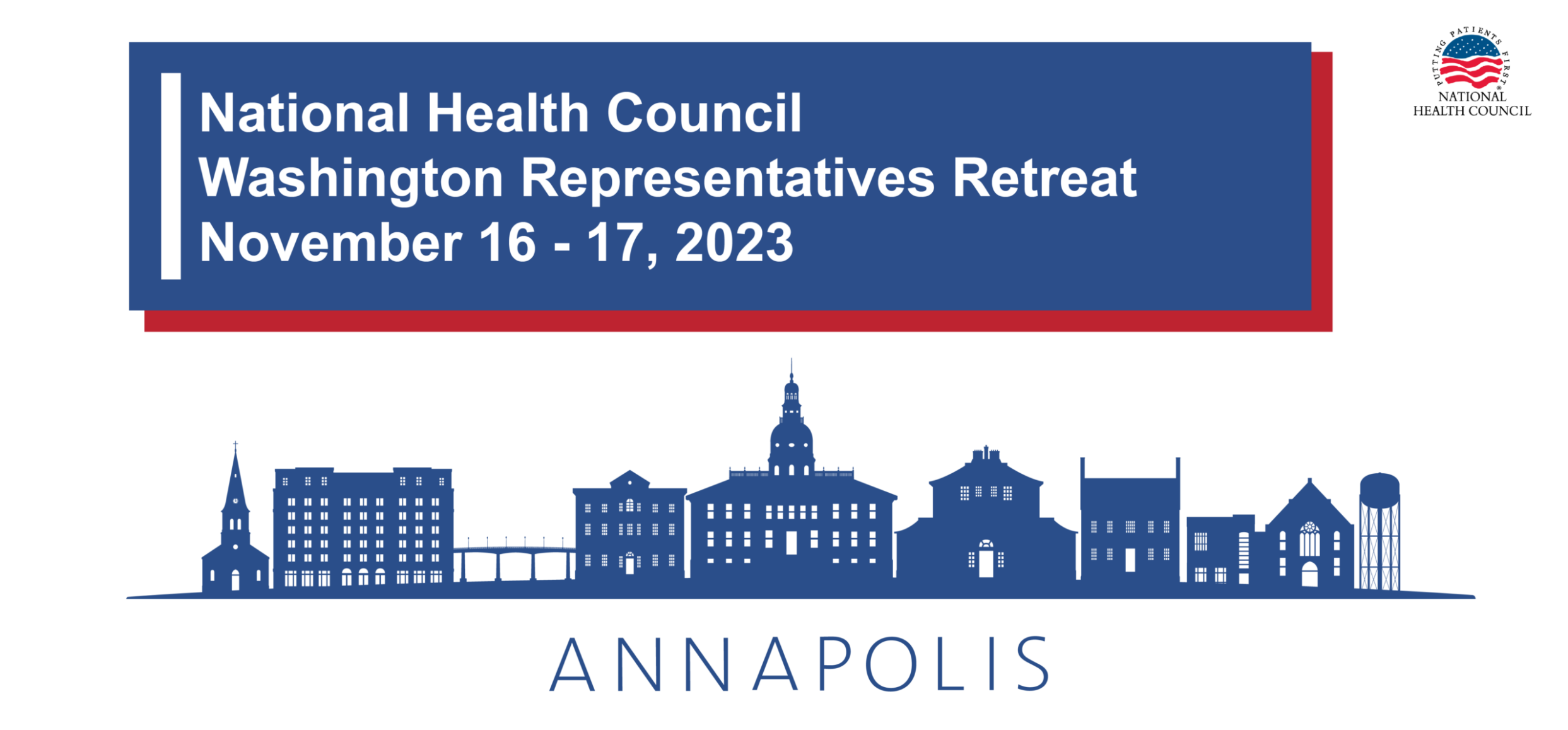
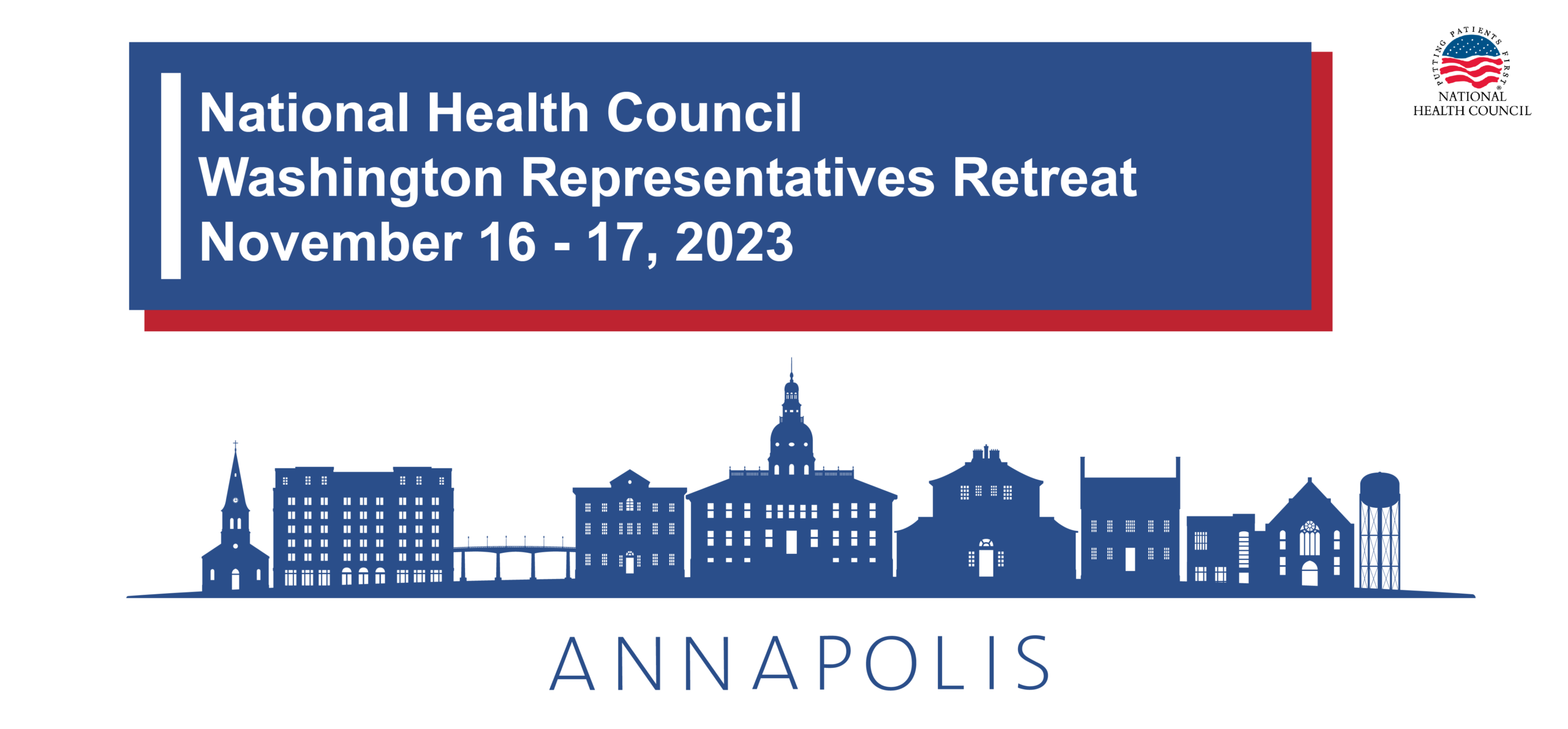
Recap: 2023 Washington Representatives Retreat
By: Bhriana Onuoha, Senior Coordinator, Communications
Last week, over 100 policy professionals from the National Health Council’s (NHC) membership gathered in Annapolis, MD, for the NHC’s annual Washington Representatives Retreat. The excitement, policy information, comradery, and professional development that were the focus of the retreat advanced the ability of the NHC and its members to advance policy that meets the needs of patients.
“This event allowed me to cast a wide net to gather information, have innovative brainstorming sessions, and build partnerships to move the health care policy need forward, so patients can live the lives they deserve.”
– 2023 Attendee
The retreat opened up with a segment titled The Road Ahead to the End of 2023 and 2024 in Health Policy, with guest speakers Michaeleen Crowell and Marty Reiser. Crowell has an extensive policy career, serving as Chief of Staff and Legislative Director for Senator Bernie Sanders and on his 2016 presidential campaign. Reiser, who’s political appetite ignited after watching former President Ronald Reagan’s acceptance speech in 1980, also has an extensive policy career focused on health care, tax, trade and pension policy and financial services. He most recently served as Policy Director for House Minority Whip Steve Scalise. Together, the two Principals of the S-3 Group, a boutique government relations and public affairs consultancy, touched on a myriad of topics, ranging from the status of the House and Senate as the December break approaches to best approaches for educating both sides of the aisle.
During the Utilization Management Effect on Patients on Patients and Providers segment, guest speakers Anna Hyde and Emily Carroll provided data-driven evidence of how patients and providers experience navigating utilization management. Hyde, Vice President of Advocacy and Access at the Arthritis Foundation, highlighted an Arthritis Foundation study that found that 50% of patients reported issues getting physician-prescribed medicines. Carroll, Senior Attorney for the American Medical Association, provided findings that 33% of physicians reported that prior authorization (PA) led to serious adverse events for a patient in their care, in addition to the burden they face as physicians. Other issues discussed included how electronic prior authorization can help address issues but is not a panacea and the need to engage on utilization management policies at the state level.
The next session centered around the Best Practices for Cutting through the Capitol Hill Noise in 2023 and Beyond, featuring Natasha Silva and Nishith Pandya, both of whom have served as Congressional staff very recently. The conversation served as a reminder to all attendees that between the increased turnover, the difficult issues they are dealing with across issue areas, and the divisiveness of the political environment, staffers on the Hill are overwhelmed and stretched thin. Silva, Senior Director of Federal Government Relations at the National Multiple Sclerosis Society, mentioned that patient volunteers and activists should personalize messages when reaching out to Hill staff. Pandya, Director of Federal Relations at the American Cancer Society Cancer Action Network, seconded that opinion, while further elaborating that messages sent to the Hill should be short and sweet. He also mentioned that state and district specific messages carry the potential to “move mountains.”
The next speaker was Eliot Fishman, Director of Policy and Programs Group at the Center for Medicare and Medicaid Innovation (CMMI) within the Centers for Medicare and Medicaid Services (CMS). Fishman led the Latest from CMMI session. Among other activities, CMMI tests alternative payment models (APMs) that reward health care providers for novel approaches to delivering cost-efficient, high-quality care. APMs can apply to specific health conditions, care episodes, provider types, communities, and innovation within Medicare Advantage or Medicare Part D.
Kristen Barnfield, a Partner at Change for Balance, and Sally George, a Communications Specialist at Change for Balance, led an engaging session about Empowering Advocates to Effectively Tell Their Stories. Data heavy, generic, and vague information coupled with poor listening skills, being overly concerned with the opinions of others, language, and lack of clear messaging are a few barriers to telling a good story. Barnfield and George spoke on how to connect with an audience along with varying challenges in today’s media environment, including social media and sound-bite journalism. They advised attendees to infuse messages with sensory details and captured the room’s attention during their demonstration of how to do so.
Gabriel Escontrías Jr., Ed.D., Tim Nanof, and Amanda Wiegrefe led the panel session on Building a Robust and Diverse Health Care Workforce. Nanof, Vice President of Policy and Government Affairs at the American Nurses Association, spoke about the areas of workforce, environment, and diversity within the nursing community, including overworking/burnout and workplace violence. Dr. Escontrías, theat the American Psychiatric Association, focused on the mental health provider workforce, including diversity and representation, insisting that more people need to have humility integrated into their practice. Wiegrefe, Director of Regulatory Affairs at the American College of Rheumatology, made mention of a number of workforce-related bills presently in Congress and added that including the patient voice into those bills is critical, as the patients are the most important voice in this conversation.
To close out the retreat, Anna Palmer, Founder and CEO of Punchbowl News, talked about the present activity on Capitol Hill. She spoke on how the post-January 6 environment has yielded unprecedented levels of divisiveness within Congress.
The retreat was ladened with networking, laughter, and the dissemination of information. There was a Show and Tell segment, where members had less than two minutes to present their topics, comments, questions, or stories. There were break-out groups that encouraged people from different organizations to get together to exchange ideas around opportunities for progress on legislation in Congress in 2024. And NHC staff presented the findings of the NHC’s 2024 Issue Survey and sought feedback on a proposed set of priorities for next year.
If you missed this year’s retreat, be on the lookout for the 2024 Summer Washington Representatives Retreat.
